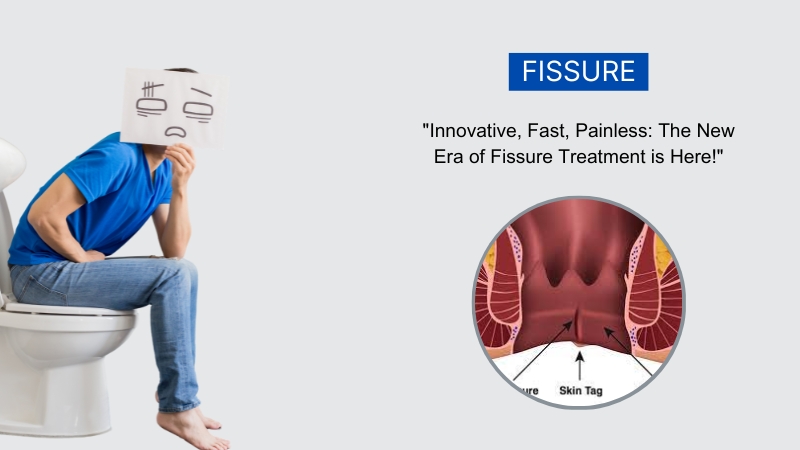Anal fissures are a common problem in India that affects people of all ages and genders. In this comprehensive blog, we will cover the numerical demography of anal fissures in India, causes, diagnosis, types, treatments, and surgery options, including laser surgery, prevention methods, and postoperative care. We will also include high search value keywords such as fissure treatment in Hyderabad, fissure treatment near me, best fissure doctors in Hyderabad, laser surgery for fissure, and fissure hospital in Hyderabad.
Numerical Demography of Anal Fissures in India:
According to a study published in the Indian Journal of Surgery, anal fissures affect approximately 11% of the Indian population. The study found that anal fissures are more common in women and in the age group of 20-40 years. The study also found that the most common cause of anal fissures in India is chronic constipation.
Causes of Anal Fissures:
Anal fissures can be caused by several factors, such as chronic constipation, diarrhea, childbirth, anal sex, and inflammatory bowel disease. Chronic constipation is the most common cause of anal fissures in India. Straining during bowel movements due to hard stools can cause tears in the skin lining the anus.
Diagnosis of Anal Fissures:
The diagnosis of anal fissures is usually done through a physical examination by a doctor. In some cases, additional tests, such as a colonoscopy or sigmoidoscopy, may be necessary to rule out other conditions.
Types of Anal Fissures:
There are two types of anal fissures: acute and chronic. Acute fissures are tears in the skin lining the anus that last for less than six weeks. Chronic fissures are tears that last for more than six weeks and are often associated with other conditions, such as inflammatory bowel disease.
Treatments for Anal Fissures:
Treatment options for anal fissures include lifestyle changes, medications, and surgery. Lifestyle changes such as increasing fiber intake, drinking plenty of water, and avoiding straining during bowel movements can help prevent and treat anal fissures. Medications such as topical creams and ointments, muscle relaxants, and stool softeners can also provide relief. In some cases, surgery may be necessary, including laser surgery, open surgery, or stapler surgery.
Laser Surgery for Anal Fissures:
Laser surgery for anal fissures is a minimally invasive procedure that uses a laser to cut the internal anal sphincter muscle. This helps to relax the muscle and reduce pressure on the fissure, allowing it to heal. Laser surgery is a safe and effective option for treating anal fissures, and it has a shorter recovery time than open surgery.
Prevention of Anal Fissures:
Prevention of anal fissures includes lifestyle changes such as increasing fiber intake, drinking plenty of water, and avoiding straining during bowel movements. Practicing good hygiene, such as keeping the anal area clean and dry, and using moist wipes or a bidet after bowel movements, can also prevent anal fissures.
Postoperative Care for Anal Fissure Surgery:
To avoid constipation and lessen strain during bowel movements after anal fissure surgery, it’s crucial to take the pain medications your doctor has prescribed and use stool softeners. Eating a healthy, high-fiber diet and avoiding spicy or greasy foods can also help with recovery. Keeping the surgical site clean and dry and avoiding heavy lifting or strenuous activity for at least a few weeks after surgery is also important.
Fissure Treatment in Hyderabad:
Hyderabad Laser Surgery Hospital (HLSH) is a top choice for fissure treatment in Hyderabad. HLSH offers expertise, cutting-edge infrastructure, and a convenient location near Madinaguda and Miyapur. The hospital has top doctors with 30+ years of experience. For more information, contact us.


0 Comments